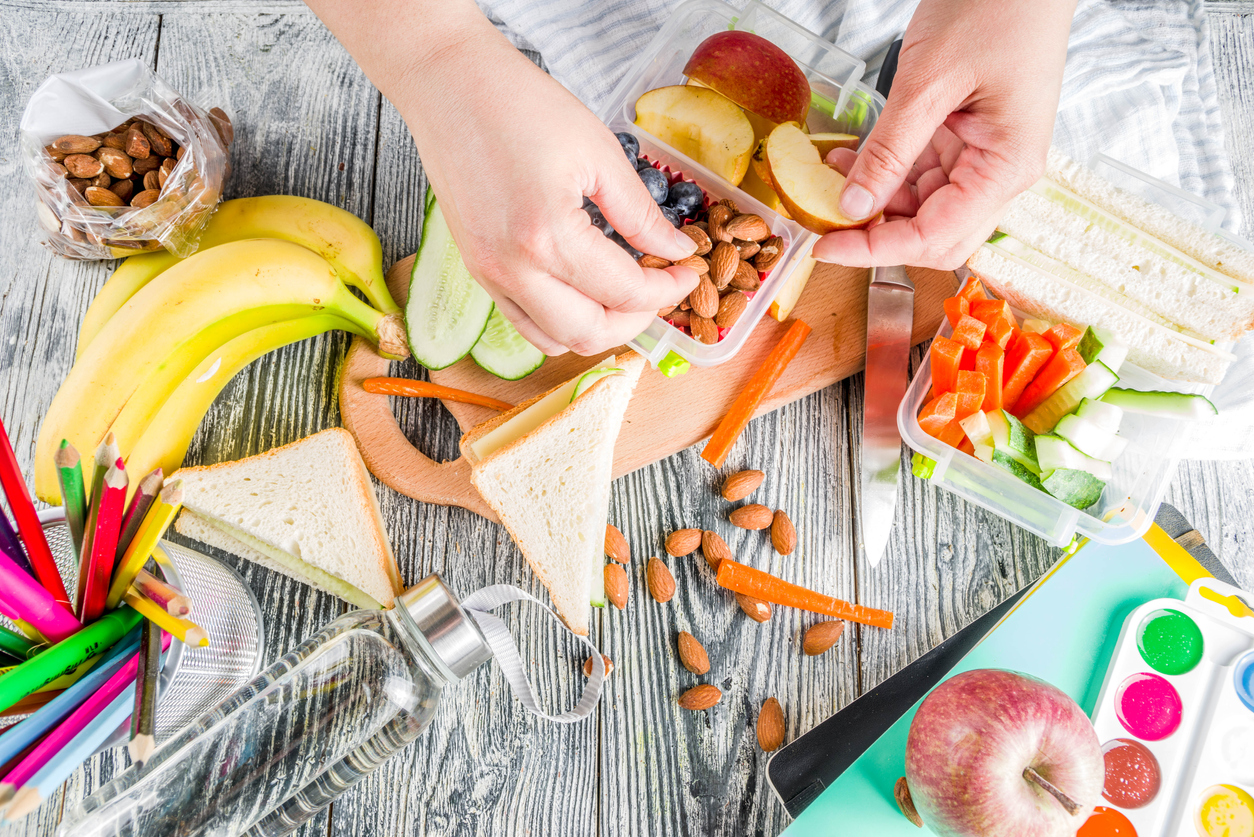According to the Centers for Disease Control (CDC), around 6.1 million children were diagnosed with ADHD in 2016. Many of them also struggle with other emotional, mental, or behavioral disorders.
While ADHD can be managed with medication, there is also reason to believe that your child’s diet can play a role in controlling the symptoms. We look at how food affects behavior and brain function. Plus, we give tips on how to structure a diet that helps your child focus at home and school.
What is ADHD?
ADHD is a disorder that affects how the brain functions and develops. Children with ADHD often struggle to sit still and focus on a task. While young children have short attention spans, children with ADHD have more extreme symptoms that don’t go away when they get older.
There are three subtypes or categories of ADHD. Your child may fall into one or more of these subtypes.
- Predominantly inattentive
- Predominantly hyperactive/impulsive
- Combined – A mix of inattentiveness and hyperactivity
Inattentive children have trouble focusing or finishing tasks. They tend to be disorganized and actively avoid activities that require focused mental effort. They are also easily distracted.
Hyperactivity/impulsivity children often fidget when forced to sit still. They are in constant motion, tend to interrupt, and will blurt out answers rather than wait to be called.
The link between nutrition and brain health
There has been a lot of research on how food impacts our health. Poor nutrition is bad for adults, leading to chronic diseases such as obesity, heart disease, type 2 diabetes, and even certain types of cancers.
Children can also be affected by poor nutrition. Certain foods aid in brain development, and conversely, others can inhibit brain activity. So, what role does diet play when it comes to ADHD?
While diet will not cure ADHD or make symptoms go away completely, certain foods may ease them. Others might make symptoms worse. Overall, proper nutrition aids brain function and makes it easier for your child to focus in school and at home.
Suggested foods for ADHD
Let’s start with the foods that are suggested to aid brain function.
Protein
A diet that contains lots of lean protein is good for overall health and brain function in children and adults. Some health experts believe a high-protein diet may help improve concentration and enable ADHD medications to work more effectively.
Sources of protein include:
- Lean meat, chicken, and fish
- Eggs
- Cheese
- Milk (soy milk is fine if your child cannot tolerate dairy)
- Peanut or other nut butters (depending on allergies)
- Beans, lentils, legumes, edamame, and tofu
- Nuts and seeds
Complex carbohydrates
Don’t let the word carbohydrate scare you. There are good carbs that provide energy. Some experts believe good carbs can also aid sleep, which kids need to be well rested and focused.
Examples of complex carb include:
- Vegetables
- Whole fruits
- Legumes
- Nuts and seeds
- Whole grains
Omega-3 fatty acids
There have been many studies about how omega-3 fatty acids can benefit the body and brain health. This family of fatty acids is found mainly in certain types of fish, but also in some nuts and oils.
Sources of omega-3 fatty acids include:
- Fatty fish: tuna, salmon, and cold-water white fish
- Walnuts and Brazil nuts
- Olive and canola oils
Foods to avoid
In general, it is better to avoid foods with a lot of sugar and simple carbs. Premade, boxed, and processed foods tend to contain more of these elements. Try to limit them as these can inhibit brain function. They can also lead to extreme highs and lows in energy, which may affect your child’s ability to focus throughout the day.
Examples to avoid:
- White rice
- White bread
- Potatoes without the skin
- Sugar
- Sugary drinks (juice, soda)
- Candy
Look for these names on food labels: sugar, brown sugar, corn syrup, corn sweetener, fructose, glucose, sucrose, maltose, malt syrup, and honey. If you see these ingredients at the beginning of the list, that means the product contains a higher amount of them.
Looking for a fun and creative way to talk about healthy eating? Check out The Rainbow Lunchbox for suggestions.
Find help at The Learning Lab
Eating a proper diet may help control ADHD, along with the proper medication. Your child may also benefit from The Learning Lab. We are a specialized center for children who have learning differences. We provide a safe and supportive environment where students can learn how to reach their potential. Our program supports students who struggle in a traditional school setting.





